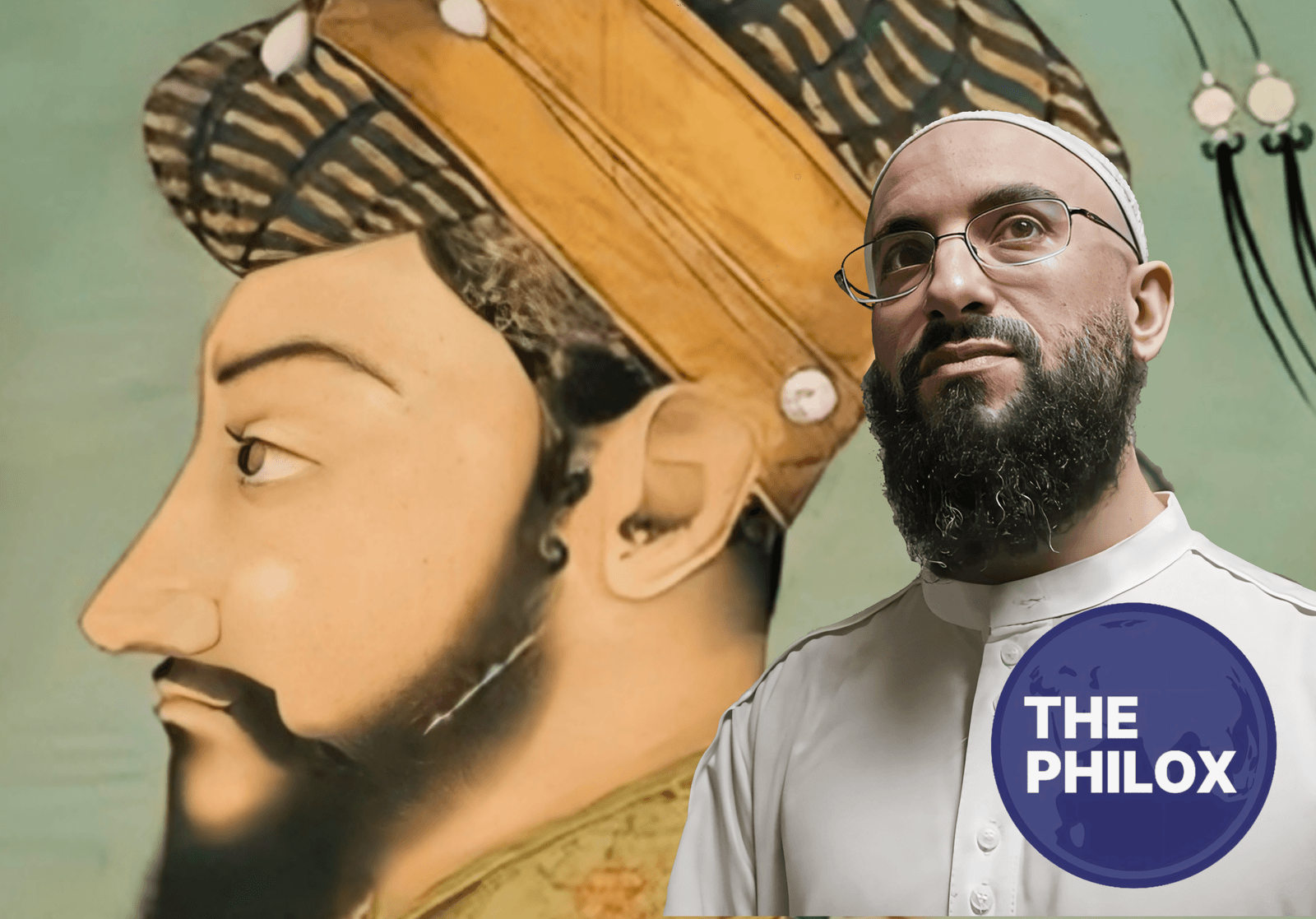Ruling India from 1658 until 1707, Aurangzeb was the sixth Mughal emperor. Over half a century of power, his rule is among the most divisive times in Indian history.
Many Hindus and secular historians view him as a merciless tyrant who instituted rigorous Islamic regulations, destroyed temples, and used an iron fist to quell upheavals.
Among certain Muslims, especially those with a strong religious or ideological bent, Aurangzeb is praised and even idolized.
This disparity begs a significant issue: Why do some Muslims view Aurangzeb in great respect even with his controversial legacy?
The solution resides in a confluence of elements, including his personal piety, rigorous adherence to Islamic values, military conquests, and the political and theological interpretation of his leadership.
His supporters saw him as a symbol of Islamic strength, discipline, and religion dedication as well as as a potent tyrant.
Personal Piety and Simplicity of Aurangzeb
Aurangzeb’s great religious commitment is one of the main factors why some Muslims respect him.
Aurangzeb was recognized for his austere way of life unlike many of his successors who savored luxury, art, and cultural fusion.
He turned away drink, music, and lavish celebrations—elements usually connected with the Mughal court before him.
It is reported he made his own money hand-copying the Quran and creating prayer hats. He ruled a large kingdom yet refused to take riches from the royal treasury for personal purposes.
Many Muslims who respect simplicity and self-control as fundamental religious values may find resonance in this humility and commitment to Islamic ideas.
Leaders in Islam are sometimes expected to live simply and give their faith top priority over worldly fortune.
Those who think that leaders should be dedicated and pious find Aurangzeb appealing since his way of living seems to fit the example of early Islamic caliphs.
His own customs contrast sharply with those of leaders such as Akbar or Jahangir, who were renowned for their pleasures but also for their openness to other cultures.
His Dedication to Islamic Legal System
Aurangzeb’s rigorous application of Islamic law (Sharia) is another main factor inspiring some Muslims’ respect of him.
Aurangzeb felt in a more traditional view of Islam while earlier Mughal rulers, especially Akbar, adopted a policy of religious tolerance and supported a syncretic culture.
Reverting the jizya levy on non-Muslims was among his most divisive actions. Hindus and Sikhs considered this fee, which Akbar had eliminated as a financial burden.
To Aurangzeb’s supporters, though, it was only a restoration to Islamic rule as advised in past Islamic tradition.
He also outlawed royal court musical and dance activities he thought to be un-Islamic. For individuals who see leaders as defenders of religious morals, this rigidity appeals.
Aurangzeb is seen by many conservative Muslims today as a model of a leader who put faith above political expediency, therefore imposing Islamic values even in cases of unpopularity or difficult implementation.
His application of Sharia law even covered his own family. Unlike earlier Mughal leaders who married Hindu princesses and promoted interfaith communication, Aurangzeb was rigorous in his religious allegiance and opposed initiatives he saw as diluting Islamic ideals.
Aurangzeb As an Islamic Warrior
Aurangzeb was heavily involved in military operations for much of his rule. Deeply into the Deccan, his expansionist plans carried him on protracted conflicts against the Marathas, Sikhs, and Rajputs.
Certain of these fights were presented as religious ones, therefore supporting Aurangzeb’s reputation as a fighter upholding Islam.
Often citing his military operations as proof of his dedication to the Islamic cause, his supporters Though historians contend that many of these conflicts were essentially political rather than religious,
the Mughal army under Aurangzeb battled Hindu and Sikh forces—some of which some of his supporters view as a sort of jihad.
Notwithstanding the great expenses of these wars, his supporters view him as a king who gave growth and security of a Muslim-ruled empire top priority and refused to make concessions to non-Muslim countries.
Strong Measures Against Critics: An Arguable Justification
Aurangzeb’s brutal treatment of his foes—including Sambhaji, the son of Shivaji, and Guru Tegh Bahadur, the ninth Sikh Guru—is a source of frequent criticism. Especially dubious is his 1675 execution of Guru Tegh Bahadur.
While Aurangzeb’s supporters contend that it was a reaction to political revolt rather than only religious persecution, Sikh sources characterise it as a martyrdom for religious freedom.
Comparably, Sambhaji’s capture and execution in 1689 were cruel deeds that his supporters defend as required actions against an opponent that is rebellious.
Advocates of Aurangzeb contend that he punished people who questioned Mughal power in line with military conventions at the time.
While his detractors perceive these acts as proof of bigotry and brutality, his supporters see them as forceful and decisive gestures required for preserving Islamic rule.
Modern Political and Religious Symbolicism
Modern politics has helped to shape Aurangzeb’s image in addition to history. Different people understand his legacy in India and Pakistan in somewhat different ways.
He is sometimes praised in Pakistan as a strong Muslim leader who maintained Islamic beliefs and fought outside influence. Said to have appreciated him for his orthodoxy are people like Allama Iqbal and Muhammad Ali Jinnah.
His legacy is more dubious in India. Although many historians and secular leaders attack him for his religious intolerance, certain Muslim leaders and groups see him as a hero who stood up for Islam against European influences and Hindu authorities.
Particularly in reaction to Hindu nationalist narratives that denigrate him, politicians like Asaduddin Owaisi have hailed him as a symbol of Muslim pride.
For some Muslims, especially those who feel excluded in contemporary India, Aurangzeb marks a period when their community was in charge. This longing is about discovering power and dignity in history, not about necessarily replaying the past.
Reevaluation of Aurangzeb’s Legacy
Aurangzeb is a very divisive person among his supporters. Large areas of his kingdom were alienated by his policies of religious intolerance, demolition of temples (including the Kashi Vishwanath temple in Varanasi), and heavy taxation.
Numerous upheavals resulting from these acts included opposition from the Marathas, Sikhs, and Rajputs, therefore undermining the Mughal Empire.
The empire was political unrest and financially worn down by the time of his death in 1707. Though they satisfied traditional Muslims, his rigorous rules also generated disturbance that helped the empire fall apart.
Many historians contend that the British could more readily exploit differences and seize control of India in the 18th and 19th centuries because of his intolerance and strict policies.
Aurangzeb’s reputation is not totally favorable even inside the Muslim world. Many academics and historians contend that his inflexible reading of Islam compromised the empire’s long-term viability.
Although his personal religiosity is valued, his military and political choices are sometimes seen as naive.
A Divisive but Respected Figure
Why therefore do some Muslims respect Aurangzeb? The response is convoluted. For his followers, he was a devoted Muslim living a modest life, enforced Islamic law, and battled ceaselessly to preserve and grow Muslim control.
To people who respect discipline and orthodoxy in leadership, his seeming hardness, religious dedication, and refusal of luxury appeal.
But this appreciation has major blind spots. Large portions of his kingdom were alienated by his austere policies, temple destruction, and intolerance, which also helped to bring about their fall-off.
Although some consider him as an advocate of Islam, others saw him as a dictator whose inflexibility finally undermined the Mughal dynasty.
The legacy of Aurangzeb still reflects a mirror with rather varied visions seen by various people. He is a saintly king for some, and an oppressive image for others. As always, the truth resides somewhere between.
Stay Connected and Share Your Stories
For all those inspired by stories of resilience and ambition, follow us on X/Twitter and on Instagram . For those with untold stories that you would love to share, please send them to contact@thephilox.com




